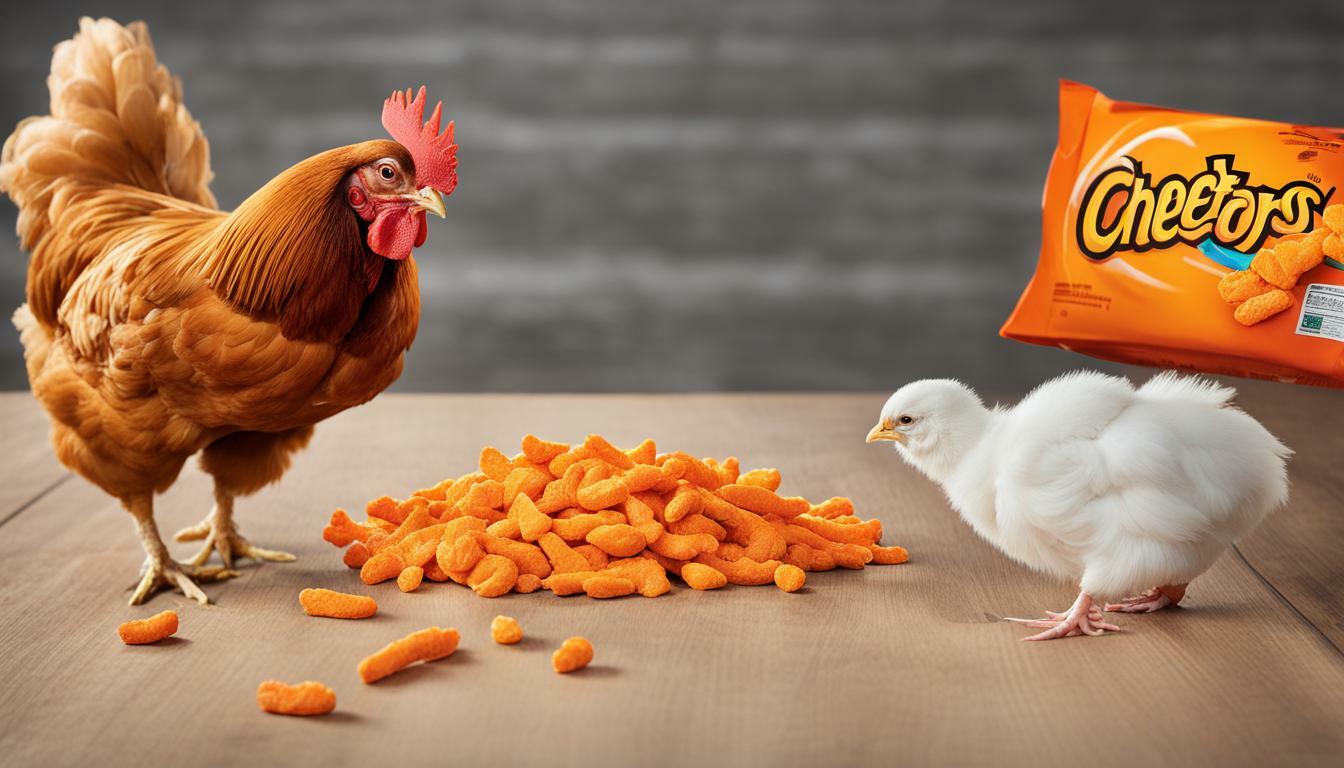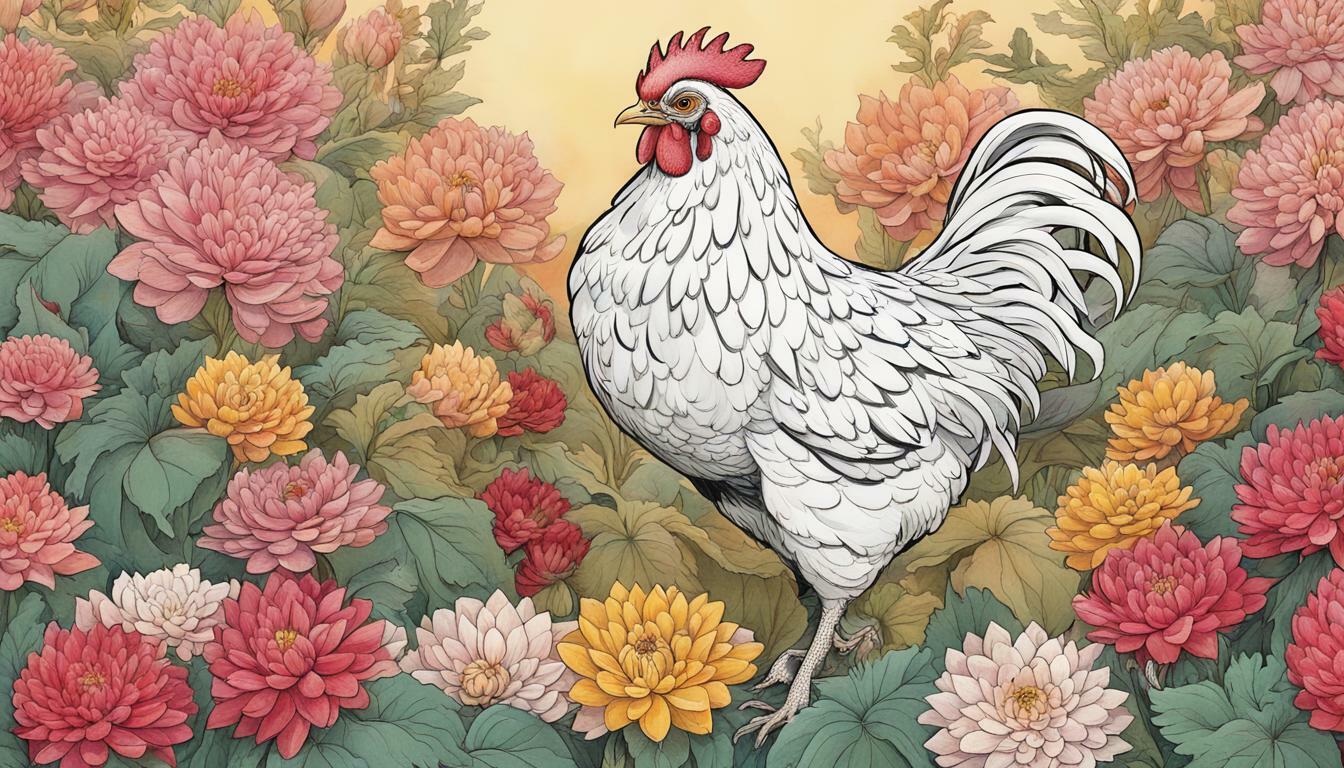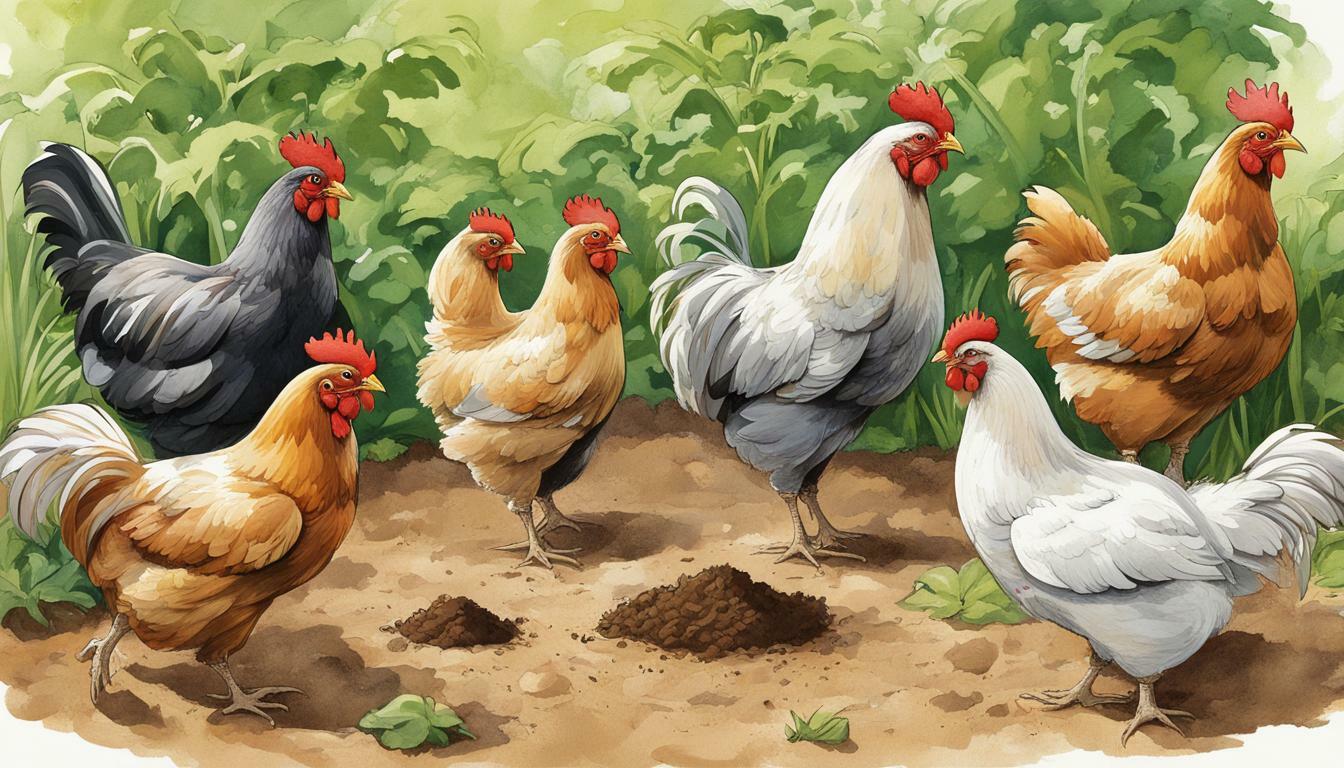Can Chickens Eat Peanuts?

Table of content:
- How Often Can Chickens Eat Peanuts?
- Are Peanuts Safe for Chickens? Dangers to Avoid
- Feeding Peanuts to Chickens in Various Life Stages
- Feeding Peanuts to Broody or Molting Chickens
- How to Serve Peanuts to Chickens
- What Type of Peanuts Can Chickens Eat?
- Healthy Peanut Treat Recipes for Chickens
- Potential Concerns When Feeding Peanuts to Chickens
- Frequently Asked Questions About Feeding Peanuts to Chickens
- Conclusion
Yes, chickens can eat peanuts in moderation as an occasional treat. While peanuts contain healthy fats, protein, and minerals, they are high in fat and should only be fed to chickens sparingly.
Many chicken owners like to offer peanuts to their flock as a special snack. Peanuts contain beneficial nutrients like protein, healthy fats, vitamin E, phosphorus, magnesium, and more.
However, they are very high in fat and low in calcium. Feeding peanuts should be done in moderation to avoid potential health issues.
When fed responsibly, peanuts can provide chickens with the following benefits:
- Protein: Peanuts contain over 25% protein, providing chickens with essential amino acids.
- Healthy fats: Peanuts are high in monounsaturated fatty acids like oleic acid which help regulate cholesterol.
- Fiber: Peanuts have insoluble fiber that promotes digestion in chickens.
- Vitamin E: Peanuts are rich in vitamin E, an antioxidant that boosts immunity.
- Minerals: Peanuts provide minerals like phosphorus, magnesium, potassium, and zinc.
How Often Can Chickens Eat Peanuts?
Most experts recommend limiting peanuts to just 1-2 times per week for chickens. Peanuts are very energy dense – just a handful provides a concentrated source of fat and calories.
When fed in moderation just once or twice a week, peanuts can be a safe, healthy supplement to a balanced chicken diet. Daily peanut consumption should be avoided.
Here are some general peanut feeding guidelines for chickens:
- Adult chickens: 1-2 tablespoons of peanuts per chicken, 1-2x per week
- Chicks: 1/2 tablespoon of crushed peanuts per chick, 1-2x per week
Always monitor your chickens’ body condition when feeding treats like peanuts. Reduce frequency if chickens become overweight.
Are Peanuts Safe for Chickens? Dangers to Avoid
While peanuts can be safe for chickens, some precautions should be taken:
Choking hazard
Whole peanuts can be a choking risk, especially for smaller breeds and chicks. Always break peanuts into smaller pieces before feeding. Avoid feeding whole nuts.
High fat content
With over 80% of their calories from fat, peanuts are very energy dense. Overfeeding can lead to obesity and other health issues. Stick to occasional, small portions.
Moldy peanuts
Peanuts can easily become moldy. Do not feed chickens moldy, rotten, or rancid peanuts as they contain toxins. Discard any questionable peanuts.
Aflatoxin poisoning
Some peanuts may contain aflatoxin, a toxic mold. Chronic aflatoxin exposure causes organ damage, lowered egg production, illness, and death. Only purchase peanuts from reputable sources and check for recalls.
As long as they are fed properly, fresh, non-contaminated peanuts are fine for chickens in moderation. Monitor their condition and reduce frequency if chickens become overweight.
Feeding Peanuts to Chickens in Various Life Stages
Chickens can eat peanuts at various life stages, but portions should be adjusted based on age.
Peanut Treats for Chicks
Chicks under 12 weeks should eat a specially formulated starter feed for proper nutrition. However, tiny portions of crushed peanuts can supplement their diet 1-2 times per week once chicks are 2-3 weeks old.
For young chicks just starting to eat treats, limit peanut portions to 1/2 tablespoon per chick. Provide crushed, softened peanuts for easier eating. Scatter peanuts in chick starter feed or offer pieces by hand.
Feeding Peanuts to Pullets
Pullets are young female chickens under 18-20 weeks old. As juveniles, their dietary needs differ from mature hens. Here are some tips for feeding peanuts to pullets:
- Wait until 12-14 weeks old to introduce peanut treats.
- Transition pullets from a starter feed to a grower feed at 6-8 weeks.
- Feed 1 tablespoon of peanuts per pullet, 1-2x weekly. Adjust as needed.
- Monitor weight gain; reduce peanut portions if pullets become overweight.
- Break peanuts into bite-sized pieces for easier eating.
- Ensure pullets finish growing before they start laying eggs.
Feed peanuts sparingly to help pullets grow strong and healthy as they mature.
Peanuts for Mature Chickens
For adult chickens over 18-20 weeks old, here are some peanut feeding tips:
- Hens can eat 1-2 tablespoons of peanuts per chicken, 1-2 times weekly.
- Roosters can eat 2-3 tablespoons of peanuts, offered 1-2x per week.
- Always control portions to prevent overeating and obesity.
- Reduce peanut frequency if chickens gain excess weight.
- Look for signs of a balanced, healthy diet like proper growth, egg production, and energy levels.
- Break peanuts into pieces for safer eating.
- Discontinue peanut treats if chickens have health issues until issues resolve.
Peanut treats should never make up more than 5-10% of a mature chicken’s total diet. Feed peanuts in moderation along with a complete layer feed.
Feeding Peanuts to Broody or Molting Chickens
Broody hens and molting chickens have higher nutritional needs. Here are some tips for feeding peanuts during these times:
Broody hens
- Increase protein intake by supplementing feed with an extra handful of peanuts 2-3 times per week.
- Help broody hens replenish nutrients lost while nesting.
- Improve feather regrowth by providing extra vitamin E from peanuts.
Molting chickens
- Boost protein up to 20% of diet by adding a handful of peanuts to feed daily.
- Feed peanuts and other treats directly to hens separate from flock mates.
- Support healthy feather regrowth with vitamins and minerals from peanuts.
- Monitor for weight loss and increase treats if needed.
The extra protein and nutrients from peanuts can help support chickens through stressful periods like brooding and molting. Adjust peanut amounts as needed.
How to Serve Peanuts to Chickens
Chickens love peanuts, but the serving method matters. Here are some tips:
Break It Up
Whole peanuts are a choking risk. Always crush or break peanuts into small, bite-sized pieces before feeding.
Mix with Feed
To discourage overeating, scatter peanut pieces into chickens’ regular feed. This prevents chickens from filling up on too many peanuts.
Offer by Hand
Hand feeding a few peanut pieces is a great form of enrichment and can help you bond with your chickens.
Use Feeders
To slow down consumption, put peanuts in a small feeder separate from regular feed. Limit access to a set time period.
Hide and Seek
Make chickens work for their treats by hiding peanuts around their enclosure. This satisfies their foraging instinct and encourages exercise.
Monitor your flock and adjust serving methods if chickens become overweight. How you serve peanuts can promote healthy habits.
What Type of Peanuts Can Chickens Eat?
Chickens can eat most varieties of peanuts, but raw, unsalted peanuts are best. Here is a quick guide to peanut types for chickens:
| Peanut Type | Can Chickens Eat? |
|---|---|
| Raw peanuts | Yes, ideal choice! Go for unsalted. |
| Dry roasted peanuts | Yes, but limit due to salt and oil content |
| Boiled peanuts | Yes, but feed in moderation. High in moisture. |
| Salted peanuts | Occasionally. Salt can be unhealthy in excess. |
| Flavored peanuts | Avoid. Excess seasoning and flavors unnecessary. |
| Peanut butter | Not recommended. High in fat, salt, and added sugar. |
| Peanut shells | No. Difficult to digest and may cause blockages. |
In general, opt for unsalted, additive-free raw peanuts. Avoid heavily seasoned, flavored, or processed peanuts.
When buying peanuts, inspect them thoroughly. Discard any moldy, damaged, or expired peanuts. Store peanuts in a cool, dry area in an airtight container.
Healthy Peanut Treat Recipes for Chickens
Beyond plain peanuts, chickens love these homemade peanut treat recipes:
Peanut Butter Mealworm Clusters
- 1 cup peanut butter
- 1 cup mealworms
- 1/2 cup raw oats
- 1/4 cup raisins or dried fruit (optional)
- In a bowl, stir together peanut butter and mealworms until evenly coated.
- Add oats and dried fruit and mix again until combined.
- Scoop tablespoon-sized clusters and place on a parchment lined baking sheet.
- Freeze until firm, then store clusters in a sealed container in the freezer.
- Thaw before feeding and offer a few clusters per chicken as a treat.
Peanut Trail Mix
- 2 cups peanuts
- 1 cup cracked corn
- 1/2 cup rolled oats
- 1/3 cup raisins or dried fruit
- Coarsely chop peanuts and place in a bowl.
- Add remaining ingredients and stir to combine.
- Store trail mix in an airtight container.
- Sprinkle a few tablespoons per chicken overfeed, or offer handfed in moderation.
These homemade peanut treats provide protein, carbs, fiber, and antioxidants chickens love. The recipes can be customized by using different dried fruits and nuts.
Potential Concerns When Feeding Peanuts to Chickens
While peanuts can be a safe, healthy treat in moderation, be aware of these potential concerns:
Obesity – Peanuts are very high in fat and calories. Overfeeding may lead to excess weight gain.
Digestive issues – Too many peanuts could potentially cause diarrhea, intestinal blockages, or Crop impaction.
Fatty liver disease – Excess fat intake can contribute to dangerous fatty liver conditions.
Aflatoxin poisoning – Feed only fresh, uncontaminated peanuts to avoid toxic mold.
Reduced calcium absorption – Peanuts contain phytic acid which can hinder calcium absorption long-term.
Monitor your flock closely and discontinue peanuts if any adverse effects are observed. Talk to a veterinarian if chickens experience continued health issues after eating peanuts.
Frequently Asked Questions About Feeding Peanuts to Chickens
Many chicken owners have questions about feeding peanuts. Here are answers to some common queries:
Can chickens eat peanut shells?
No, peanut shells are indigestible and pose a choking hazard or intestinal blockage risk. Only feed the nut meat inside shells.
What about expired or moldy peanuts?
Never feed chickens rotten, moldy, or rancid peanuts. Stick to fresh, high-quality peanuts within the expiration date and discard any that look questionable.
Are peanuts a substitute for chicken feed?
No, peanuts should only be an occasional treat. They do not provide complete nutrition and calories are too high for a regular diet. Always feed a balanced chicken feed.
Can chickens eat peanut butter?
Not recommended. Peanut butter is high in salt, sugar, and oil. A small amount very occasionally won’t hurt but should not be a regular treat.
Can chicks or baby chickens eat peanuts?
Yes, but wait until 2-3 weeks old and only feed crushed peanuts in tiny portions 1-2x per week. Chicks under 12 weeks should primarily eat starter feed.
Can chickens eat peanuts every day?
No, chickens should only eat peanuts 1-2 times per week at most. The high fat content makes daily peanut feeding unhealthy.
Conclusion
When fed properly in moderation, peanuts make a nutritious supplemental treat that chickens relish. Their protein, healthy fats, antioxidants, and minerals provide benefits.
However, peanuts are high in fat and calories, so portions and frequency must be controlled.
By following basic feeding guidelines, monitoring your flock, and pairing peanuts with a nutritionally balanced feed, chicken owners can safely allow their flock to enjoy peanuts as part of a varied diet.
Welcome. I’m Adreena Shanum, the proud owner of this website, and I am incredibly passionate about animals, especially poultry. I founded adreenapets.com as a labor of love, stemming from my desire to share my knowledge and experiences with poultry enthusiasts worldwide.




